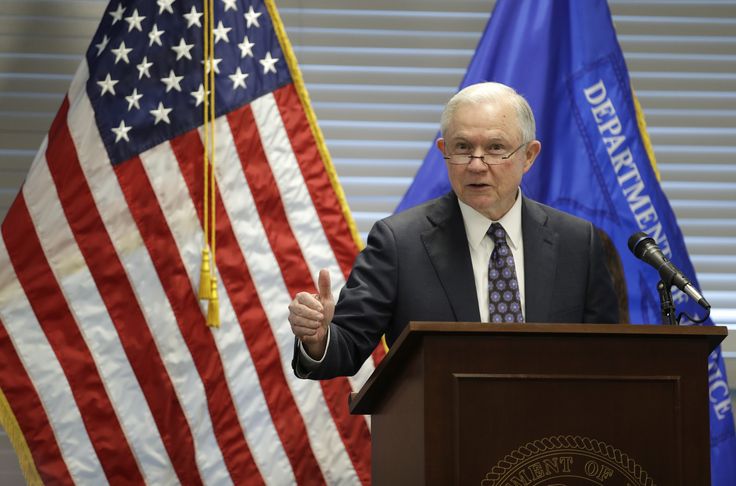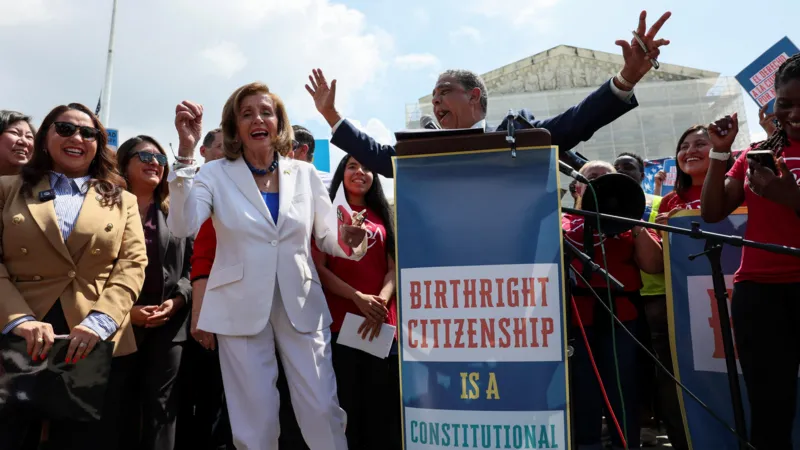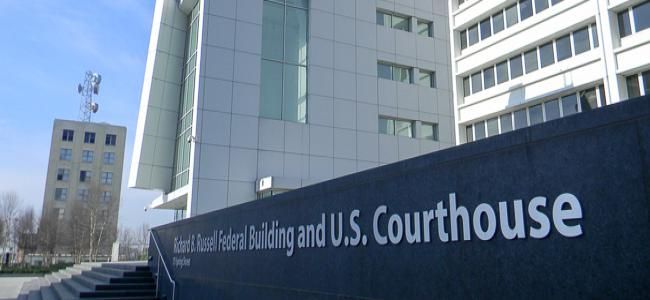In a landmark case that could reshape the future of U.S. immigration laws, the U.S. Supreme Court recently held hearings on President Donald Trump’s controversial bid to end birthright citizenship. The case presents critical questions regarding the power of judges to block presidential executive orders nationwide. The court’s decision in this case could have far-reaching implications for the future of U.S. immigration policy, particularly for children born on U.S. soil to undocumented parents.

Background of the Case:
Birthright citizenship, as enshrined in the 14th Amendment of the U.S. Constitution, grants citizenship to anyone born in the U.S., regardless of the immigration status of their parents. President Trump’s administration, however, has sought to challenge this interpretation, asserting that children born to undocumented immigrants should not automatically receive U.S. citizenship. The executive order issued by Trump sought to end this long-standing practice, arguing that the phrase “subject to the jurisdiction thereof” in the 14th Amendment should exclude children of undocumented immigrants.
Lower courts, including those in Maryland, Massachusetts, and Washington, issued nationwide injunctions, blocking the enforcement of Trump’s executive order. The Trump administration has now taken the case to the Supreme Court, arguing that these injunctions are an overreach of judicial power and that only individual plaintiffs should be impacted by court orders, not the entire country.

Key Arguments in the Case:
At the heart of the case lies the question of judicial authority: can lower courts issue nationwide injunctions against executive orders, or does that power rest solely with the Supreme Court? The U.S. Solicitor General, defending Trump’s position, argued that the lower courts have overstepped their authority by issuing injunctions that have nationwide consequences. In contrast, the New Jersey solicitor general, representing a group of states, argued that siding with Trump would create a fragmented system of citizenship, resulting in chaos and uncertainty for millions of Americans.
The Role of the 14th Amendment:
One of the central issues in the case is the 14th Amendment itself. Critics of Trump’s executive order contend that it violates the Constitution by stripping U.S. citizenship from children born on American soil. The 14th Amendment’s clear language states, “all persons born or naturalized in the United States, and subject to the jurisdiction thereof, are citizens of the United States.” Legal experts argue that altering this interpretation would require a constitutional amendment, not an executive order.

Potential Consequences of the Case:
The outcome of this case could have significant consequences, particularly for children born to undocumented parents. If the Supreme Court rules in favor of Trump’s order, it could strip citizenship from thousands of children, leaving them potentially stateless or undocumented. Legal experts argue that this could create a new class of individuals who are denied basic rights, despite being born in the United States.
In addition, the case raises broader questions about the balance of power between the executive, legislative, and judicial branches of government. A ruling in favor of the Trump administration could embolden future presidents to bypass the legislative process, issuing sweeping executive orders without fear of judicial intervention.
What’s Next:
The Supreme Court is expected to issue its decision later this year, and the ramifications of that ruling could extend well beyond the immediate issue of birthright citizenship. As the court deliberates, lawmakers, legal experts, and immigration advocates are closely watching the case, knowing that its outcome could change the trajectory of U.S. immigration policy for generations.

Conclusion:
As the Supreme Court deliberates on this high-stakes case, the future of birthright citizenship in the United States hangs in the balance. The case serves as a reminder of the complex interplay between the Constitution, executive power, and judicial oversight. No matter the outcome, this case will likely shape the discourse surrounding immigration and citizenship in the U.S. for years to come.
Call to Action:
Stay informed about this landmark case and other developments in U.S. law by subscribing to our blog. Follow us for more in-depth analysis on the latest legal challenges and their impact on U.S. politics and society.
Author Profile
- Syed Tahir Abbas is a Master's student at Southwest University, Chongqing, specializing in international relations and sustainable development. His research focuses on U.S.-China diplomacy, global geopolitics, and the role of education in shaping international policies. Syed has contributed to academic discussions on political dynamics, economic growth, and sustainable energy, aiming to offer fresh insights into global affairs.
Latest entries
 U.S. Foreign PolicyFebruary 2, 2026AI and Grand Strategy: The Case for Restraint – Navigating the Future of American Power
U.S. Foreign PolicyFebruary 2, 2026AI and Grand Strategy: The Case for Restraint – Navigating the Future of American Power National SecurityJanuary 31, 2026Treating China’s Connected Energy Systems as a National Security Risk
National SecurityJanuary 31, 2026Treating China’s Connected Energy Systems as a National Security Risk Global HealthJanuary 29, 2026The Future of the WHO—and How the United States Can Shape It
Global HealthJanuary 29, 2026The Future of the WHO—and How the United States Can Shape It Global TradeJanuary 22, 2026Trump Cancels Tariffs on European Nations Over Greenland Pursuit?
Global TradeJanuary 22, 2026Trump Cancels Tariffs on European Nations Over Greenland Pursuit?

